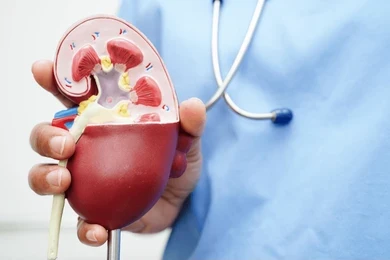
Introduction
Chronic Kidney Disease (CKD) is a progressive condition that affects kidney function over time, potentially leading to kidney failure. While there is no absolute cure for CKD, medical management plays a crucial role in slowing its progression, alleviating symptoms, and improving quality of life. This article explores key medical management strategies for CKD, including medications, lifestyle adjustments, and clinical interventions.
Understanding Chronic Kidney Disease
CKD occurs when the kidneys gradually lose their ability to filter waste and excess fluids from the blood. The condition can be caused by factors such as diabetes, high blood pressure, genetic disorders, and chronic infections. Early detection and medical management are essential for maintaining kidney function and preventing complications.
Medical Management of Chronic Kidney Disease
1. Medications
- Blood Pressure Control: ACE inhibitors and ARBs help lower blood pressure and reduce kidney damage.
- Diuretics: Help manage fluid retention and prevent swelling.
- Phosphate Binders: Reduce phosphorus levels to protect bone health.
- Erythropoietin-Stimulating Agents (ESAs): Help treat anemia by stimulating red blood cell production.
- Sodium Bicarbonate: Helps correct metabolic acidosis, a common issue in CKD.
- Glucose Control Medications: For diabetic patients, medications like SGLT2 inhibitors and GLP-1 receptor agonists help manage blood sugar while offering kidney protection.
2. Dietary Modifications
- Low-Sodium Diet: Helps control blood pressure and fluid retention.
- Protein Moderation: Reducing protein intake decreases kidney workload while maintaining nutritional needs.
- Potassium and Phosphorus Restriction: Helps prevent electrolyte imbalances and bone disorders.
- Hydration Monitoring: Adequate fluid intake is essential but should be adjusted based on kidney function.
3. Lifestyle Modifications
- Regular Exercise: Helps maintain cardiovascular health and control blood pressure.
- Smoking Cessation: Reducing tobacco use slows CKD progression and improves overall health.
- Weight Management: Maintaining a healthy weight helps prevent diabetes and hypertension-related kidney damage.
- Stress Management: Practices like meditation and deep breathing can reduce cortisol levels, benefiting kidney health.
4. Clinical Interventions
- Regular Monitoring: Routine blood and urine tests help track kidney function and detect any worsening conditions early.
- Dialysis: When CKD reaches end-stage, hemodialysis or peritoneal dialysis becomes necessary to remove toxins from the body.
- Kidney Transplant: A long-term treatment option where a healthy donor kidney replaces the failing kidneys.
Preventing CKD Progression
To slow down CKD progression, it is essential to:
- Adhere to prescribed medications and treatment plans.
- Maintain a kidney-friendly diet.
- Monitor and control blood sugar and blood pressure levels.
- Avoid overuse of NSAIDs and other kidney-damaging medications.
- Regularly consult a nephrologist for personalized treatment adjustments.
Conclusion
Medical management is critical in improving the quality of life for CKD patients and preventing complications. With a combination of medications, lifestyle adjustments, and clinical interventions, patients can slow the progression of CKD and maintain optimal kidney function. If you or a loved one is affected by CKD, consult a healthcare professional to develop a personalized medical management plan.

